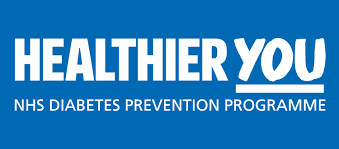NIHR CLAHRC Greater Manchester to Manage Study of World’s First National Diabetes Prevention Programme
NIHR CLAHRC Greater Manchester and University of Manchester to deliver a four-year research study to evaluate the national rollout of NHS Diabetes Prevention Programme.
The National Institute for Health Research Collaboration for Leadership in Applied Health Research and Care Greater Manchester (NIHR CLAHRC GM) has been appointed to manage a four-year evaluation research study of the national rollout of the ‘Healthier You: NHS Diabetes Prevention Programme (DPP)’ - a collaboration between NHS England, Public Health England and Diabetes UK, which aims to reduce the growing number of people at risk of developing Type 2 Diabetes Mellitus (T2DM) across England.
Funded by NIHR Health Services and Delivery Research (HS&DR), the evaluation of the nationwide rollout will be carried out by a multidisciplinary team of researchers at the University of Manchester (UoM) and project managed by NIHR CLAHRC GM. It will provide a rigorous assessment of the success of the NHS DPP in meeting the aim of reducing Type 2 diabetes incidence in a way that is cost-effective and sustainable, and provide evidence to inform the ongoing development and quality improvement of the programme.
Speaking about NHS DPP and the evaluation study, Dr Jenifer Smith, Programme Director at Public Health England, said: “This is the first nationwide Type 2 diabetes prevention programme in the world and the world will be watching to see whether it works. We’re pleased with the range of academic experts appointed to evaluate the programme and we look forward to working with them to ensure it succeeds.”
Professor Jonathan Valabhji, National Clinical Director for Obesity and Diabetes at NHS England, said: “Focussing on preventing disease is essential for healthcare systems around the world. The NHS DPP, in addition to helping individuals, is the NHS’ flagship prevention programme, and to win hearts and minds around the prevention agenda we have to be able to demonstrate that it does what is written on the tin. That’s why this evaluation is so important.”
While Type 1 diabetes cannot be prevented and is not linked to lifestyle, Type 2 diabetes is largely preventable through lifestyle changes. There are currently five million people in England at high risk of developing Type 2 diabetes, and if these trends persist, one in three people will be obese and one in 10 will develop Type 2 diabetes by 2034. The NHS DPP, which aims to identify those at high risk and refer them onto a behaviour change programme, started in 2016 with a first wave of 27 areas covering 26 million people, half of the population, and making up to 20,000 places available. It will rollout to the whole country by 2020, with an expected 100,000 referrals available each year after.
Professor Matt Sutton, Centre Lead for the Manchester Centre for Health Economics and one of the lead academics for the evaluation study, commented: “There’s strong international evidence which demonstrates how behavioural interventions, which support people to maintain a healthy weight and be more active, can significantly reduce their risk of developing Type 2 diabetes.”
The NHS DPP is a large national programme attempting to deliver those benefits ‘at-scale’. We’re very pleased that the University of Manchester has been selected to provide a robust evaluation, using our great strengths in health services research.”
Known as ‘DIPLOMA’ (Diabetes Prevention – Long term Multimethod Assessment), the four-year evaluation research programme builds on the evaluation of the NHS DPP demonstrator model in Salford, which started in 2015 and concluded earlier this year. It is a is a mixed methods study which will investigate implementation of the NHS DPP across the country, access and equality, service delivery and fidelity, outcomes and variations, comparative effectiveness and comparative long-term effectiveness compared to usual care in terms of long-term costs and benefits. DIPLOMA will report regularly on its findings to the NHS DPP and NIHR, with a final report due in March 2021.
For further information, please visit the DIPLOMA project page on the NIHR CLAHRC GM website. A plain English description has also been published on the NIHR website as a featured case study.
Date Published: 27/09/2017
